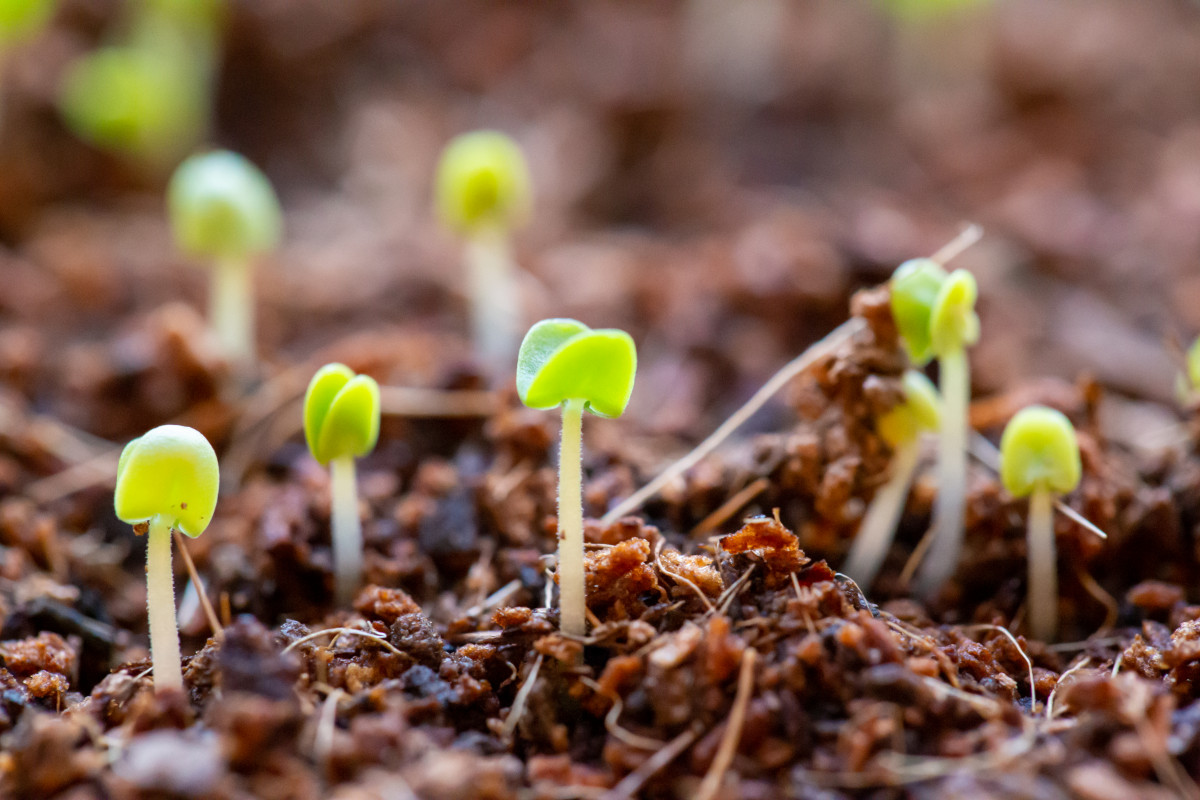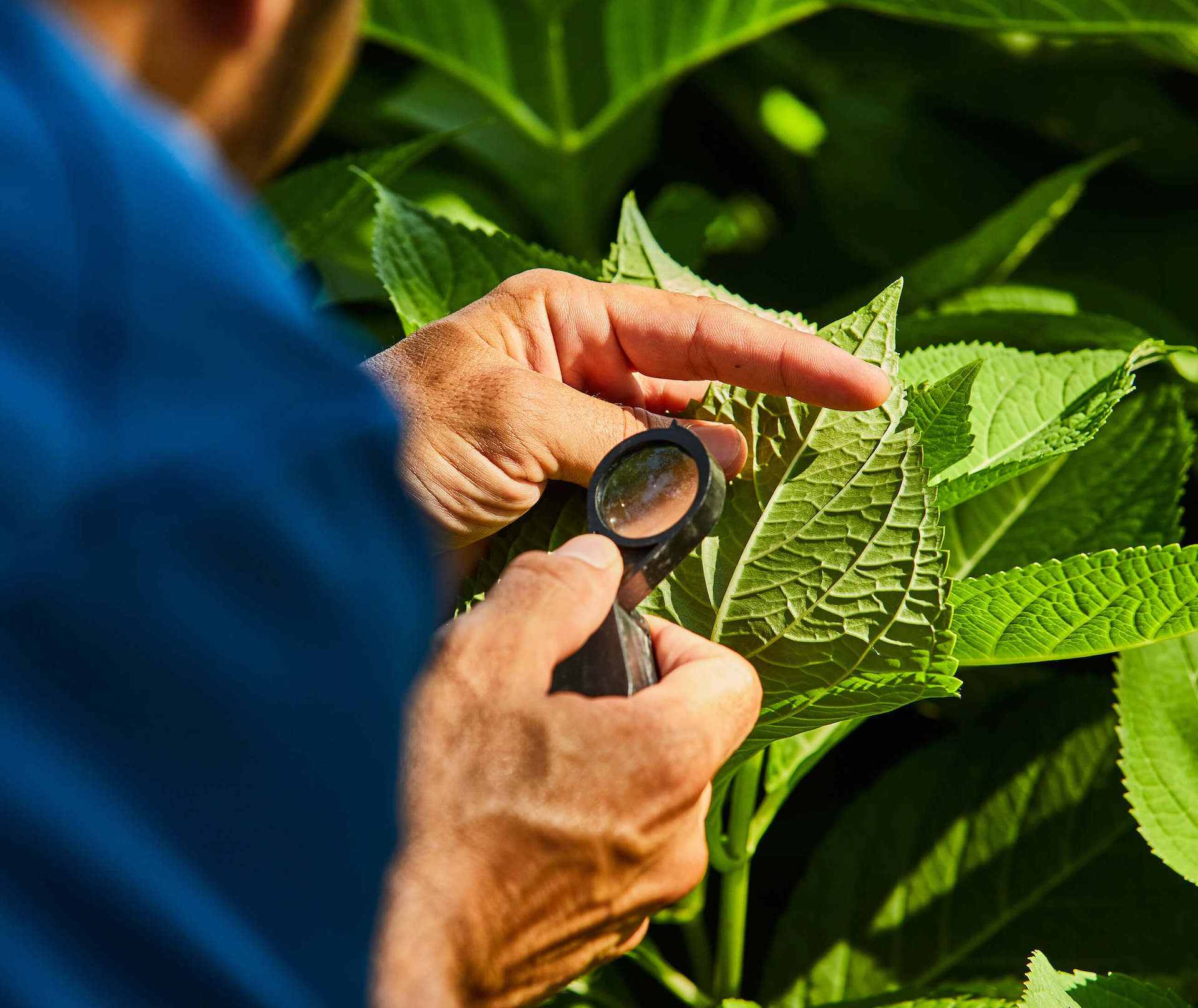
The Down & Dirty of Plant Health Care
Soil’s Superb Superpowers
- Supplying essential nutrients for plant growth
- Absorbing rainwater & saving a supply for droughts
- Filtering potential pollutants
- Hosting a nourishing habitat for those sassy soil microbes to flourish

Soil Nutrients
We’ve all heard countless ads, doctor’s advice, or strong parental recommendations urging us to eat a balanced diet. While food pyramids continually evolve and change, our bodies, young and old, are still happiest when consuming an array of vitamins and minerals from food or supplements in the right quantities. Similarly, plants require the proper amount of essential nutrients. Many of these are gained from the surrounding soil— too much or too little nutrients can kill a plant. Each essential nutrient contributes to a specific function of plant growth and development.
Often, it can be difficult to spot the cunning culprit of poor plant health just by looking at it, and symptoms of dreaded diseases can also be caused by insects, herbicides, compacted soil, or large variants in soil moisture levels.

Common symptoms of poor plant health:
- Limited plant growth
- Dead tissue at the tips, along the edges, or within the leaves themselves
- Dead or yellowing leaves in only one part of the plant
- Yellow or white streaks between the leaf veins
Bonick plant health care experts test the soil in order to determine the correct amount of nutrients needed. Often, fertilization is the next step to soil salvation.
Why Fertilize?
Organic Vs. Synthetic Fertilizers
Organic fertilizers are typically made from plants and/or animals matter and work according to the laws of science. Organics are released slowly into the soil, improving its overall quality and increasing its beneficial microorganisms. By increasing the micro biotic activity of the soil, plants can utilize the nutrients to achieve better root growth. Deeper, healthier roots are less likely to need constant irrigation. This vibrant, healthy soil results in an uprising of strong plants and a pest and disease-resistant, sustainable environment. Basically, when an organism is fed to its best ability, it develops to its full potential.
Examples: compost, guano, manure, seaweed, and processed bone meal.
Inorganic or Synthetic fertilizers typically contain less than 5% of carbon matter. Synthetic fertilizers are fast-acting and encourage top growth, but not necessarily root growth. Their high nitrogen content can burn grass and plants, thus requiring a generous amount of water after application. Synthetics can also build up salts in the soil and weaken the plants’ natural defense mechanisms, making plants susceptible to insects and disease.
Examples: ammonium sulfate and urea ammonium nitrate.
Think of it this way—sugary sweets may taste delicious and give us a temporary sugar high but sugar is not sustainable. However, if we eat a balanced meal and get our fruits and vegetables, as Mom always said, we will look and feel our best.

Bonick Landscaping’s horticulturists and plant health care experts have been caring for gardens for nearly four decades. You can trust our specialists to maintain healthy soil levels and keep your plants in optimum condition for a lush, year-round landscape. Contact us with any questions or to create your own custom maintenance package.
— by Tammy Dalke Vanderkolk